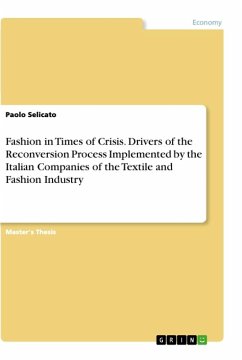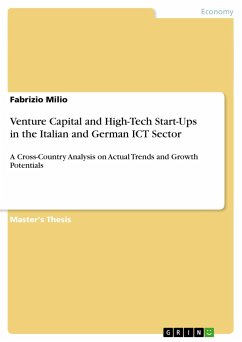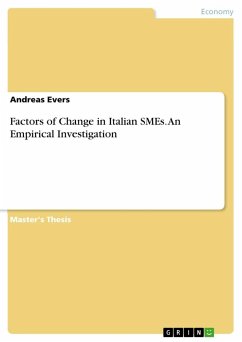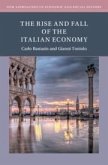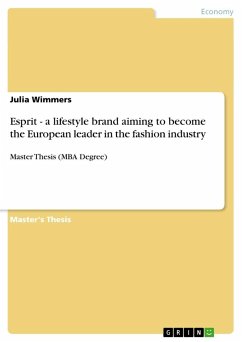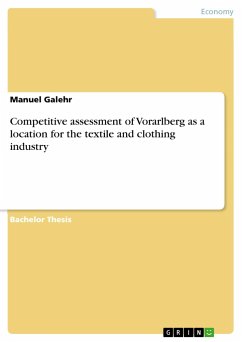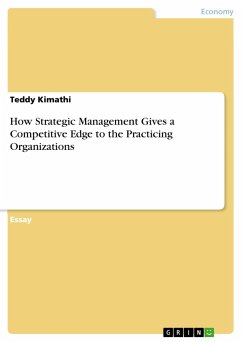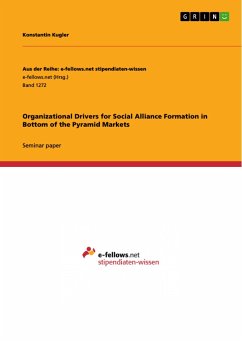Master's Thesis from the year 2020 in the subject Business economics - Business Management, Corporate Governance, grade: 110/110 with honours, University of Bologna (Scuola di Economia, Management e Statistica), course: Direzione Aziendale, language: English, abstract: Fashion and Textile companies are currently producing face-masks because of the national sanitary emergency. To do that, in March 2020 they reconverted to produce a different product from those belonging to the core business. This study aims to explain how companies of a specific sector, the fashion and textile one, answered to an exogenous crisis, dividing this process in rationale, opportunities and challenges, key factors of the reconversion, and future changes in the reference industry caused by Covid-19. Though the implementation of a qualitative study, eight companies were interviewed for this work and the information analysed through a two-cycle coding process (i.e. 1st order codes and 2nd order themes) to produce similarities and dissimilarities in reference to the reconversion process. Comparing themes between firms produced important answers to the research question in the form of four theoretical categories, that were constantly related with the literature reviewed and the secondary data analysis. This has provided further corroboration to the empirical evidence suggested in this dissertation. This work provides explanations of this reconversion process, starting from its rationale to the analysis of the opportunities and challenges that matched the companies¿ resources and competences endowment. The dissertation finally offers findings that can be tested and implemented in future research.
Hinweis: Dieser Artikel kann nur an eine deutsche Lieferadresse ausgeliefert werden.
Hinweis: Dieser Artikel kann nur an eine deutsche Lieferadresse ausgeliefert werden.

